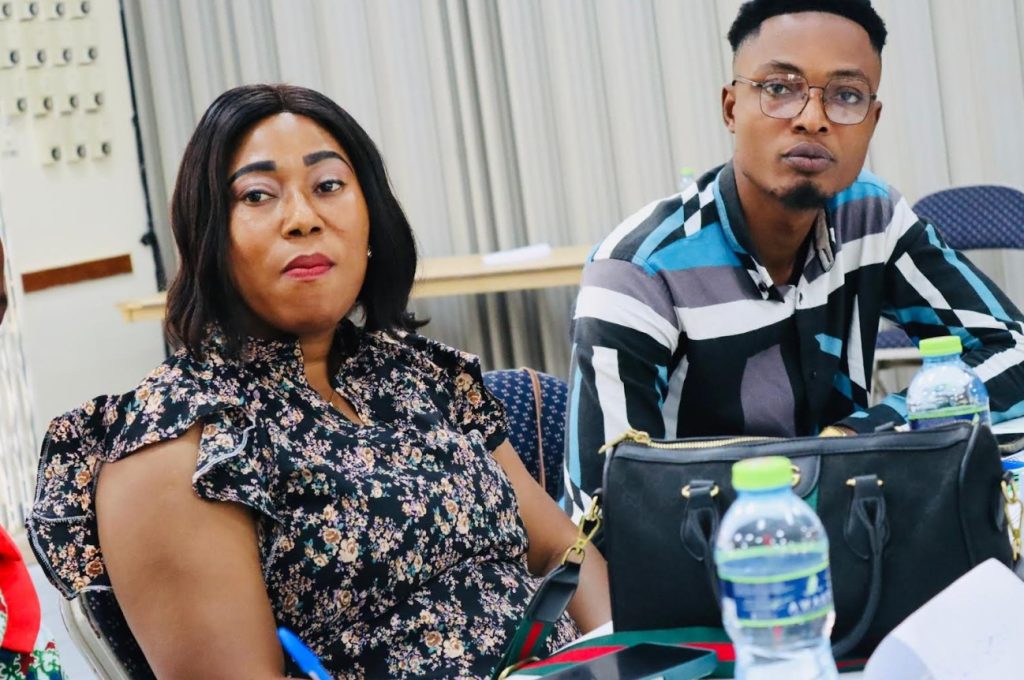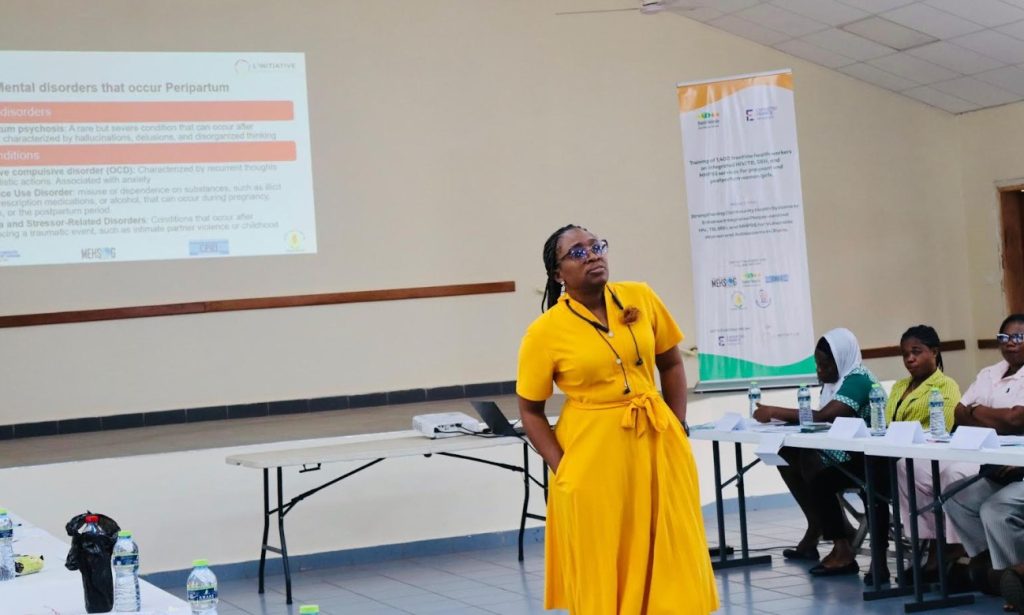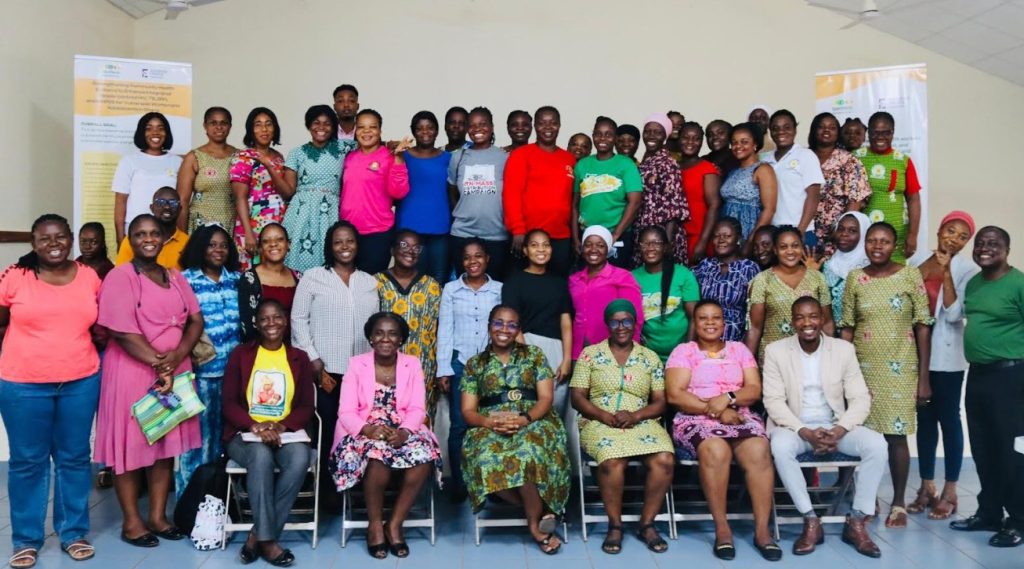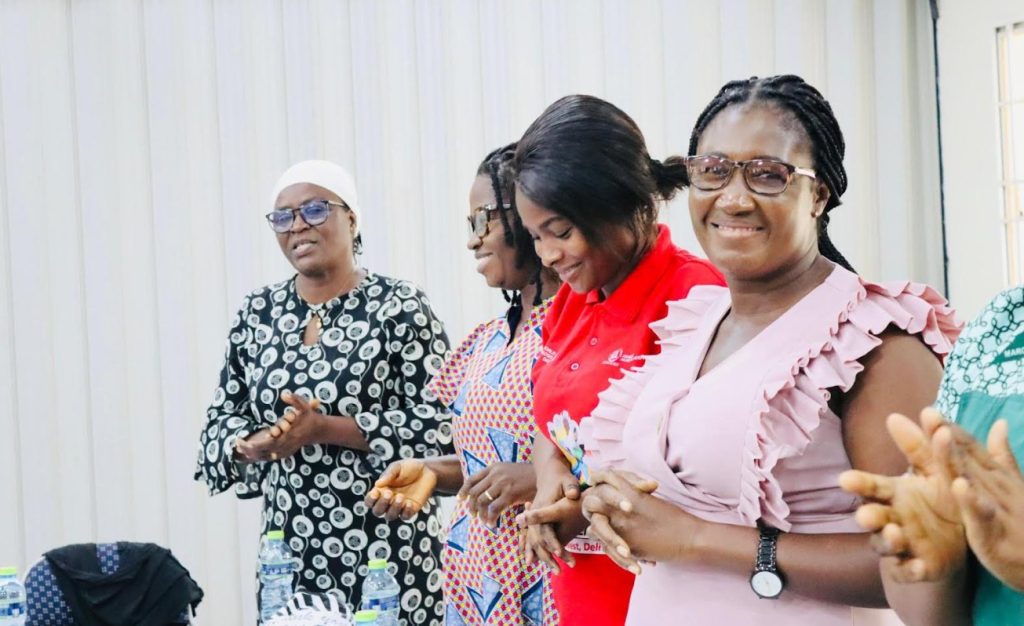More than 100 family health workers in the Ashaiman Municipality have been equipped with skills to integrate mental health and psychosocial support (MHPSS) into HIV, tuberculosis (TB), and sexual and reproductive health (SRH) services, thanks to a four-day training organised by BasicNeeds-Ghana with support from Expertise France under the Global Fund L’Initiative programme.
The capacity-building activity, delivered in two batches in the Ashaiman Municipal, is part of a three-year project aimed at improving maternal and child health outcomes for some of Ghana’s most vulnerable women and girls.
Opening the training, Mr. Dominic Wunigura, Programme Coordinator at BasicNeeds-Ghana’s Accra office, shared a background of the project and the major role of the primary health workers. He emphasized the urgent need to strengthen the integration of mental health into primary health care, particularly highlighting the linkages between mental health and HIV, TB, and SRH care services in Ghana. “Up to 20% of pregnant women/girls and postpartum mothers experience depression, anxiety and or psychosis during pregnancy or in the first 12 months after giving birth. This could be higher for women/girls living with HIV, TB and victims of Gender Based Violence, as a result of the high burden of social stigma and discrimination.”
He added that there is a limited screening for mental health and psychosocial conditions among pregnant women and girls, and mothers of babies below two years in the existing maternal records book in Ghana, which prevents early identification and treatment, and consequent increased risks of poor prenatal/postnatal care and non-compliance to medications.

In one of the sessions, facilitator, Dr. Jemima Brown, reminded participants that HIV and TB remain among the most pressing health challenges worldwide. She noted that Sub-Saharan Africa accounts for 62% of new HIV infections among women and girls, and that TB during pregnancy can double the risk of maternal and newborn mortality. Both conditions, she explained, can also increase the likelihood of reproductive complications such as cervical cancer, infertility, and ectopic pregnancies.
Dr. Brown also addressed the often-overlooked intersection between physical and mental health. Through candid discussions, participants confronted harmful stereotypes, shared real-life cases, and practiced responding with empathy. “Every patient who walks into a hospital has some mental health needs — whether we recognize it or not,” she said. “We must train our eyes, ears, and hearts to see the whole person, not just their diagnosis.”
Another facilitator, Dr. Elsie Abakisi, led sessions on perinatal mental health, early detection, and psychosocial support. She highlighted that one in ten pregnant and postpartum women globally experience significant mental health conditions within the first year after delivery. Without proper care, these challenges can have lasting effects on both mother and child.

The project will equip 1,400 family health workers across 14 districts in seven regions, including Northern, Savannah, North-East, Upper East, Upper West, Bono, and Greater Accra.
The project “Strengthening community health systems to enhance integrated, people-centred HIV, TB, SRH, and MHPSS for vulnerable women and adolescents in Ghana” is being implemented in partnership with the Christian Health Association of Ghana (CHAG), Centre for People’s Empowerment and Rights Initiatives (CPRI), and Mental Health Society of Ghana (MEHSOG).
Key national collaborators include the Ghana Health Service, Ghana Mental Health Authority, Ghana AIDS Commission, and the Global Fund Country Coordinating Mechanism.
The programme targets 14,000 of the poorest and most vulnerable women and girls in Ghana—especially those living with HIV or TB, survivors of gender-based violence, and women at risk of reproductive health complications.



